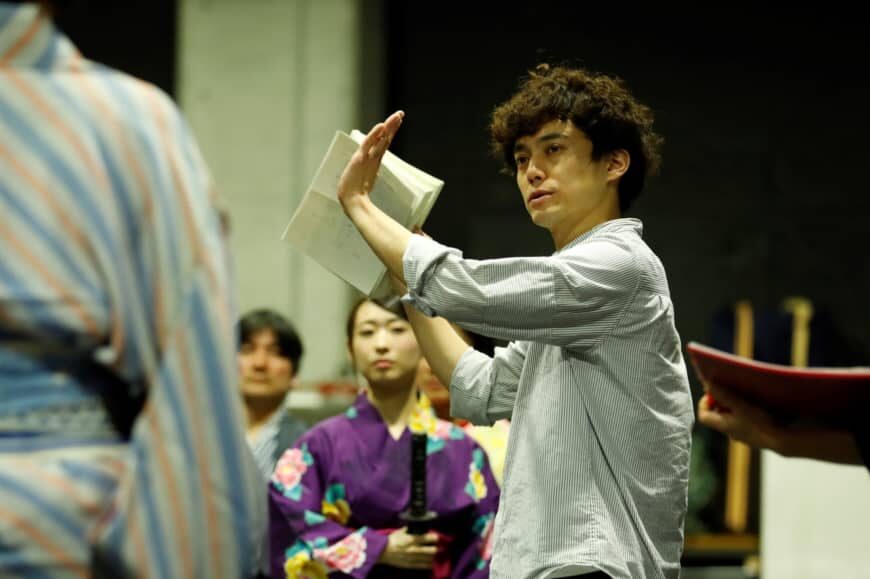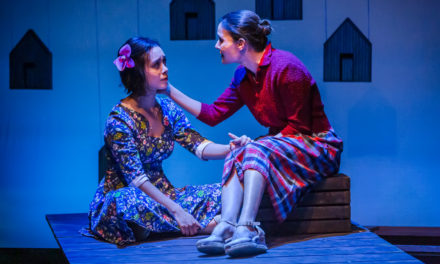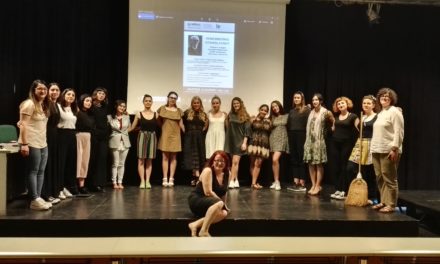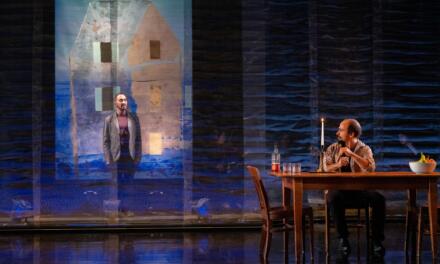In theater, as in daily life, it is possible to have too much of a good thing. Such was the case with Tempo 12-nen no Shakespeare (Shakespeare in Year 12 of the Tempo Era) by dramatist and writer Hisashi Inoue.
Production History
Set in the underworld of 1841 Japan, and featuring characters and fragments from all of William Shakespeare’s 37 plays, the production premiered in Tokyo in 1974 as a keenly anticipated confection of yakuza thrills and spot-the-Bard challenges for those in the know. Yet, it only garnered a lukewarm reception; The main talking point is the audience members who were forced to leave to catch their trains home before the end of the marathon 4½-hours, plus work. For Inoue (1934-2010), an acclaimed playwright and author of a socially critical comedic fiction who had just received a Kishida Drama Award for Dogen no Boken (The Adventures of Dogen), and a Naoki Literature Prize for his novel Tegusari Shinju (Handcuffed Double Suicide), it was a rare setback. The play was close to becoming terminal, and it was decades before it was performed again; which eventually happened in 2002, when a tweaked and slightly shorter musical reprise was staged by Hidenori Inoue (no relation) – a director renowned for large-scale entertainment shows with lots of sword fights and music.
Perhaps inspired by that, the next to take a shot at “Tempo” was the late theater icon Yukio Ninagawa (1935-2016), a famed director of Shakespeare and classical Greek plays in Japanese. With the benefit of a slimmed-down script edited by Hisashi Inoue, his version drew gleeful applause and standing ovations at Theatre Cocoon in Shibuya, Tokyo, in 2005. Ninagawa’s staging captivated audiences from the opening scene which, with superbly succinct visualization, presented half-naked Edo Period (1603-1868) workmen demolishing the old Globe Theatre in London and creating a lively Japanese street from yesteryear on stage.
The 2020 Undertaking
Now, 15 years on, one of the country’s most promising directors, 39-year-old Shuntaro Fujita, is bravely presenting a “festive” take on “Tempo” at the 1,330-seat Nissay Theatre in Tokyo’s central Hibiya district.
Having been one of the assistants on Ninagawa’s production, Fujita was already familiar with its storyline in which a town’s aging gang boss, named Buri no Jubei (played this time by Kazunaga Tsuji), portions out his turf between his three daughters, as Shakespeare’s King Lear did his domains. Then, in line with the 17th-century tragedy, the youngest named Omitsu (based on the pure and honest Cordelia, and played by Fuka Yuzuki), upset her father and is driven out of their home.
Later, while her cunning older sisters, Ofumi and Osato (Shakespeare’s Goneril and Regan, played by Juri Sakiho and Kate Doi), argue over money, a limping gambler named Sado no Miyoji (Issey Takahashi) is directed their way by an old oracle, similar to one of the witches in “Macbeth.” Akin to Shakespeare’s Richard III — but with a role and lines that also draw from “Macbeth,” “Julius Caesar” and “Richard II” — Sado no Miyoji then starts taking over the town and its people’s wealth.
So far, so good for the forces of darkness — until, with shades of both Hamlet and Romeo, Ofumi’s son, Kijirushi no Oji (Kenji Urai), returns to avenge his murdered father.
Shuntaro Fujita
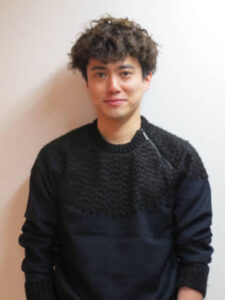
39-year-old Director Shuntaro Fujita of Tempo 12-nen no Shakespeare. Nissay Theatre, Tokyo. Feb 2020. Photo: Nobuko Tanaka.
Fujita debuted as a director in 2011 with a self-penned one-act comedy play, which incorporated music and was staged in a small theater in Shinjuku, Tokyo. Soon after, he was directing musicals proper. In 2015, his Japanese version of Andrew Lloyd Webber’s The Beautiful Game won him the Best Newcomer prize in the prestigious Yomiuri Drama Awards. He followed that by winning its coveted Grand Prize in 2017 for his hugely popular staging of the American musical Jersey Boys. Then, in January 2019, Fujita was invited to the U.K., where he staged another American musical, Violet, at the Charing Cross Theatre off London’s West End, with an all-British cast.
A year on, he is brimming with excitement. “I want to create what nobody has ever seen — a new ‘Tempo’ for today’s people,” he says. “I am trying all sorts of things and mixing all kinds of elements. For example, the cast includes veteran drama actors and others from musicals, while traditional Japanese dance and contemporary dance are both performed on stage, sometimes at the same time.
Directors Thoughts
Reflecting on working for Ninagawa, Fujita says that, being new to the team at the time, he simply watched everything from a distance from the maestro, though he adds that “Tempo” is, in a sense, his birthplace as a dramatist. “That said, I don’t know what I actually learned from (Ninagawa), or his recipe for the theater because he never explained any theories to us,” he says. “But I do know he’s still a towering presence. “However, I’m not doing this out of nostalgia; I want to really make inroads into the play by mobilizing all the resources of skills and ideas I’ve got from my experience as a director — although I’ve only done about 10 works so far.”
“Our music director, Akira Miyagawa, has also composed songs based on pop, rock and Japanese folk, that the musical’s actors sing with great energy and the veterans solidly underpin,” Fujita says he has cut almost 30 pages of the script to improve the play’s flow and knock more than 30 minutes off the duration of Ninagawa’s production.
“I kept all the lines related to Shakespeare’s plays, but got rid of ones duplicating meanings, though I carefully retained the distinctions between a character’s true thinking and their actual behavior,” the director says. “After my edits, I showed it to Inoue’s widow, Yuri, and to the Japan Council of Performers Rights & Performing Arts Organizations, and they all gave it a thumbs-up.”
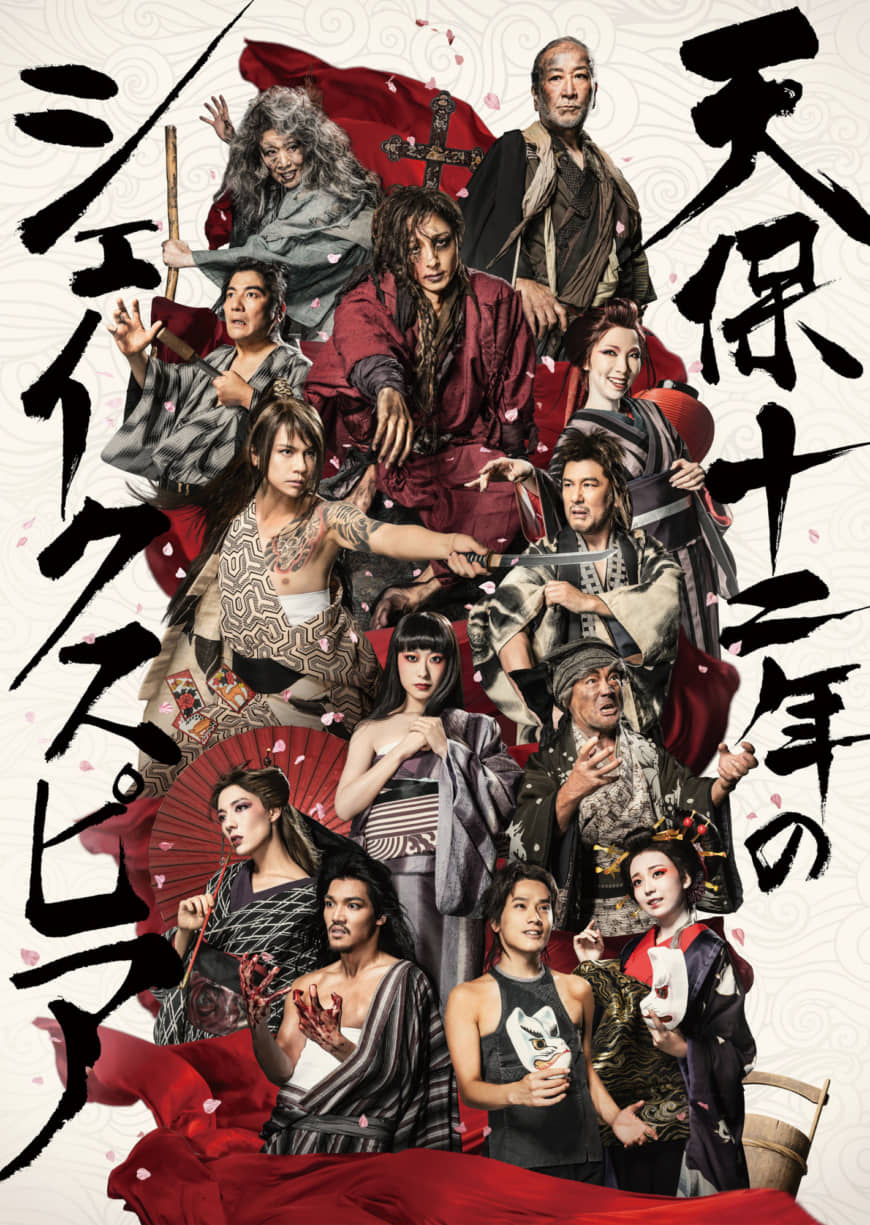
Tempo 12-nen no Shakespeare Dir. Shuntaro Fujita. Nissay Theatre, Tokyo. February 2020.
Finally, Fujita reflects on the production’s timing. “Because I have made a festive play with lots of songs, yakuza rivalry, plots, and witty lines, it seems perfect for this Olympics year, but when you understand the story and Inoue’s clever and sarcastic words, it reveals the profound darkness of today’s society,” he says.
“In fact, ‘Tempo’ has lots of opposing factors, such as truth and lies, people smiling but having demonic thoughts, light and darkness, and life and death.” Fujita then rhetorically asks whether Japan is really bathed in a joyous Olympics glow, saying he thinks many people are truly feeling great anxiety right now. “I sense there’s a huge gap between our uncaring social atmosphere and the excitement on the internet or our television screens,” he says. “You’ll actually see more of our reality in this Edo Period tale of vibrant everyday life when most ordinary people were poor and were treated badly.”
Catch the show
Tempo 12-nen no Shakespeare (Shakespeare in Year 12 of the Tempo Era) runs from Feb. 8 to 29 at the Nissay Theatre in Hibiya, Tokyo.
This article was originally posted at TheJapanTimes.com on January 25th, 2020 and has been reposted with permission. For the original article click here
This post was written by the author in their personal capacity.The opinions expressed in this article are the author’s own and do not reflect the view of The Theatre Times, their staff or collaborators.
This post was written by Nobuko Tanaka.
The views expressed here belong to the author and do not necessarily reflect our views and opinions.

